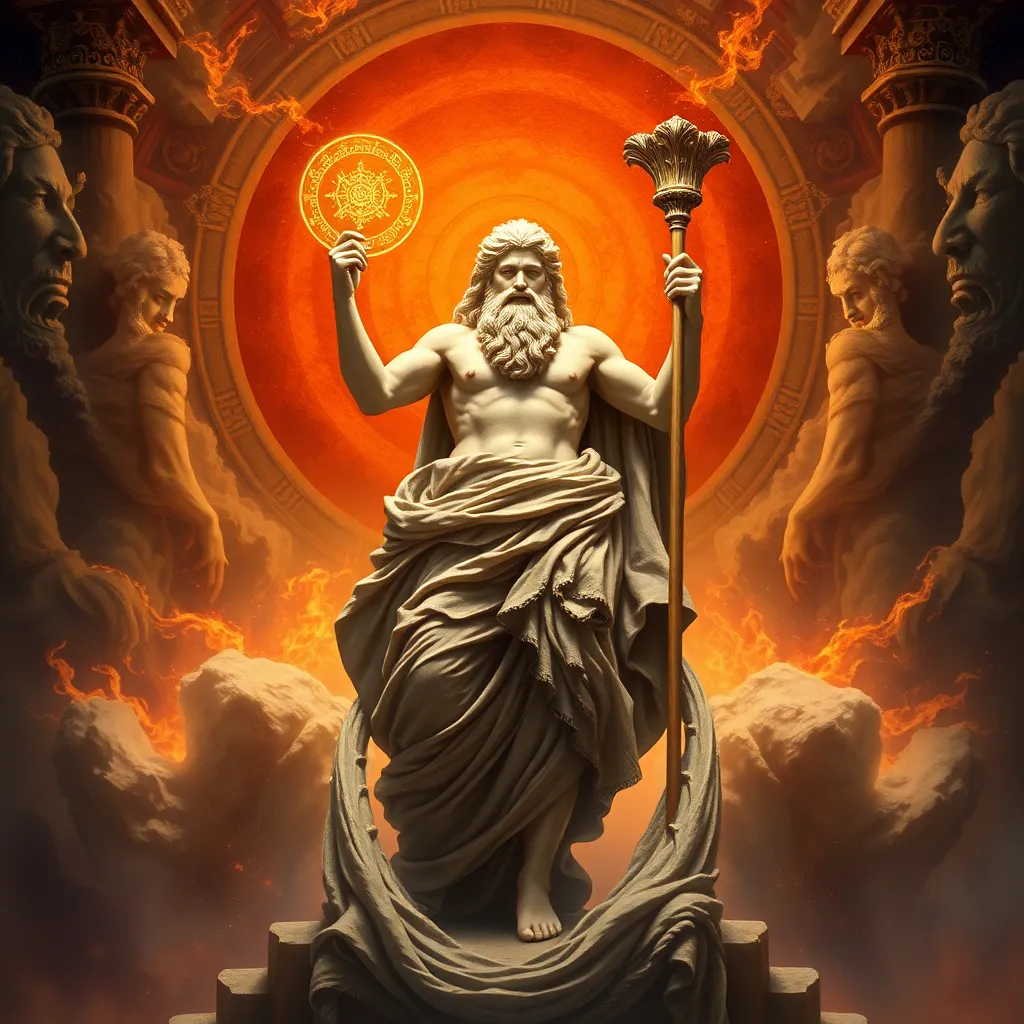The Role of Dionysus in the Understanding of Human Experience
I. Introduction
Dionysus, one of the most intriguing figures of Greek mythology, embodies a multitude of themes that resonate deeply with the human experience. Known as the god of wine, fertility, and festivity, he represents the duality of ecstasy and chaos, offering profound insights into the nature of existence. The importance of Dionysian themes lies not only in their mythological roots but also in their application to understanding the complexities of human emotions, identity, and societal dynamics. This article aims to explore the multifaceted role of Dionysus in mythology and how his influence extends into modern interpretations of the human experience.
II. Historical Context of Dionysus
The origins of Dionysus can be traced back to ancient Greek religion, where he was worshipped as a vital deity associated with the vine and the intoxicating power of wine. His mythology is rich with stories that illustrate his significance in both personal and communal life.
- Origins of Dionysus: Some scholars suggest that Dionysus originated from pre-Greek or even non-Greek cultures, with connections to fertility gods in the Near East.
- Evolution of Worship: Initially worshipped by a small group of followers, his cult gradually gained prominence across Greece, leading to the establishment of major festivals.
- Bacchanalia: The Bacchanalia, a series of festivals dedicated to Dionysus, became notorious for their ecstatic celebrations, characterized by uninhibited revelry and communal bonding.
III. Symbolism of Dionysus
Dionysus is a complex symbol whose meanings encompass various aspects of human existence.
- Duality: He embodies both ecstasy and chaos, representing the fine line between joy and madness.
- Life, Death, and Rebirth: Dionysus symbolizes the cycle of life, capturing the transient nature of existence and the promise of renewal.
- Connection to Nature: As a nature deity, he signifies the primal forces of the earth and the unconscious mind, reflecting humanity’s intrinsic bond with the natural world.
IV. Dionysus and the Concept of Identity
Exploring identity through Dionysian experiences reveals much about the self and the collective.
- Exploration of Self: Dionysian rituals often challenge the boundaries of individual identity, allowing participants to explore their inner desires and fears.
- Intoxication and Altered States: The effects of wine and ecstatic experiences lead to altered states of consciousness, prompting introspection and self-discovery.
- Community and Collective Identity: Dionysian worship fosters a sense of belonging, blurring individual identities as participants unite in shared experiences.
V. Dionysian Themes in Literature and Art
Dionysus has been a source of inspiration for countless works of literature and art throughout history.
- Classical Literature: In Euripides’ “The Bacchae,” the duality of Dionysus is explored through the conflict between rationality and instinct, ultimately demonstrating the consequences of denying one’s true nature.
- Visual Arts: From ancient pottery to Renaissance paintings, Dionysus has been depicted in various forms, often highlighting his association with revelry and the natural world.
- Influence on Theories: Dionysian themes resonate with existential and psychological theories, particularly those exploring the human psyche and the nature of reality.
VI. The Dichotomy of Order and Chaos
The balance between order and chaos is a central theme in understanding Dionysus’s role in human experience.
- Rationality vs. Irrationality: Dionysus challenges the notion of order, emphasizing the importance of embracing chaos as a vital aspect of life.
- Understanding Human Nature: The interplay of order and chaos reflects the complexities of human behavior, revealing the irrational impulses that drive individuals.
- Chaos in Creativity: Many artists and thinkers credit their creative breakthroughs to moments of chaos, demonstrating the productive potential of embracing the Dionysian spirit.
VII. Modern Interpretations of Dionysian Ideals
In contemporary society, Dionysian principles remain relevant, influencing various fields.
- Relevance in Society: The pursuit of ecstatic experiences, whether through art, music, or communal gatherings, reflects a modern resurgence of Dionysian ideals.
- Application in Fields: Psychological and philosophical explorations often draw upon Dionysian themes to address the complexities of identity and human behavior.
- Interest in Ecstasy: There is a growing fascination with ecstatic experiences, as people seek deeper connections and understanding of their inner selves.
VIII. Conclusion
Dionysus stands as a pivotal figure in the exploration of human experience, embodying the delicate balance between chaos and order. His influence transcends time, offering insights into the nature of identity, community, and creativity. The enduring legacy of Dionysian themes continues to resonate in modern society, prompting individuals to embrace the complexities of their existence. Ultimately, the exploration of Dionysus invites us to reflect on our own lives, encouraging a harmonious relationship between the ecstatic and the rational, the chaos and the order that define our shared human journey.




